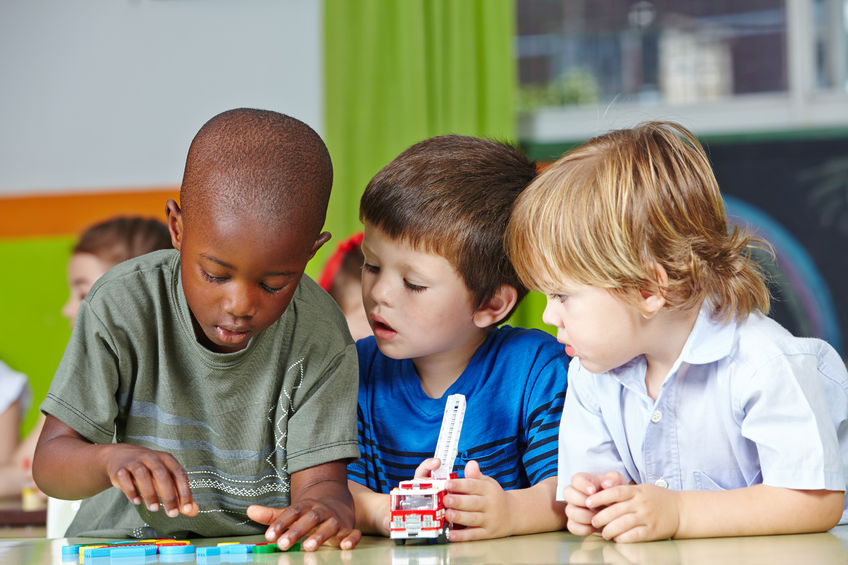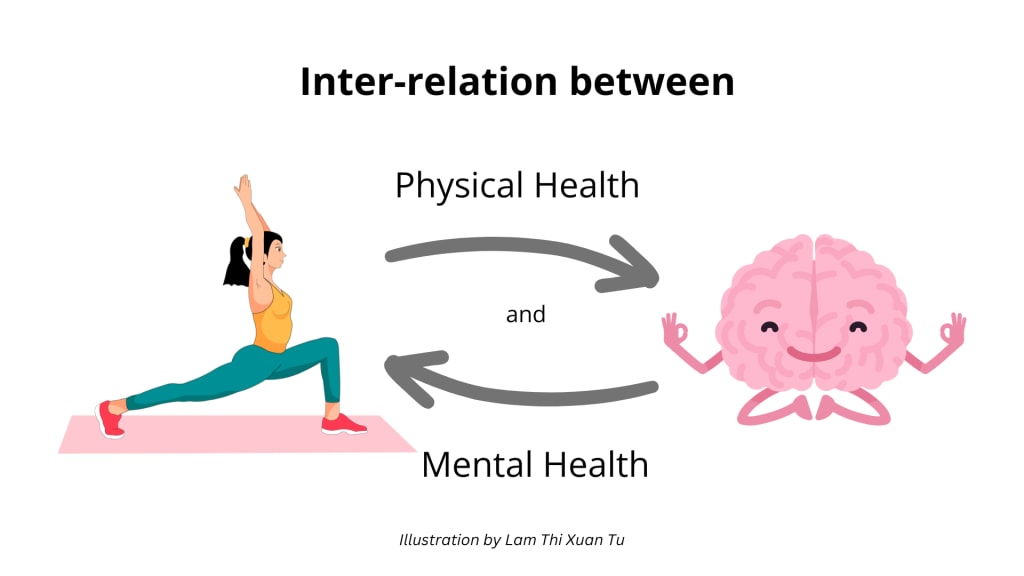The Ultimate Guide to Child Development: Unlocking the Impact of Early Socialization
by admin Parenting
In the journey of child development, the early years are a crucial stage in shaping a child's social, emotional, and psychological growth. Effective socialization allows children to learn essential skills like empathy, communication, and emotional regulation, which are fundamental for building strong interpersonal relationships. This article delves deep into the significance of early socialization, especially concerning solitary play, parental guidance, and emotional regulation, exploring how these factors contribute to a child’s ability to adjust socially and emotionally.
How Solitary Play Influences Social Adjustment in Children
Social adjustment is integral for children as they grow, helping them develop effective ways to interact with others, form friendships, and adapt to societal norms. According to Rubin et al. (2009), social adjustment refers to how well a child adapts to the expectations and changes within social environments, emphasizing the ability to establish meaningful interactions with others. When children engage in solitary play for extended periods, they may struggle to develop the necessary skills to interact effectively with their peers, affecting their overall social adjustment.
Social Withdrawal and Its Impact on Social Behavior
Children who consistently display socially withdrawn behavior tend to avoid engaging in social activities with their peers, often displaying anxiety or a preference for isolation. Research by Boivin et al. (1995) identifies social withdrawal as a significant factor in childhood isolation, which may lead to behavioral issues that affect a child's self-esteem and willingness to participate in group activities. Socially withdrawn children may also experience a disconnect from society, facing difficulties in building meaningful relationships.
Early Experiences and Social Anxiety
The experiences children undergo in early life can profoundly influence their ability to adjust socially. Children exposed to neglect, social exclusion, or harsh peer rejection may develop a deep sense of social anxiety, leading them to retreat from interactions (Rubin et al., 2009). These experiences create a negative view of social environments, where the child feels unwanted or unappreciated, prompting them to avoid social situations in favor of solitary play.
The Effect of Peer Acceptance on Social Adjustment in Solitary Play.
Peer acceptance plays a central role in shaping a child's social adjustment. Children who experience rejection from their peers due to behavior problems, speech difficulties, or other challenges may develop a reduced sense of self-worth. As highlighted by Boivin et al. (1995), peer rejection is often associated with issues like low self-esteem, leading to further withdrawal and isolation.
Conversely, children who are accepted and integrated into social groups are more likely to develop strong social skills and emotional regulation, helping them to navigate social settings with ease. Solitary play often emerges as a strategy for coping with feelings of exclusion or insecurity. Children prone to such isolation tend to demonstrate signs of anxiety, low confidence, and lack of interest in interacting with others (Rubin et al., 2009).
Addressing the Rural Dilemma: Nurturing Social Skills in Isolated Environments.
Children in rural settings often face the challenge of limited access to socialization opportunities, which can hamper their ability to develop essential social and emotional skills. Ben, for example, lives in a country neighborhood with few preschool-age children. Without consistent exposure to peers, he could feel socially isolated, missing crucial developmental experiences.
To address this, it’s recommended that Ben’s parents take him to town on a weekly basis to meet and interact with other children. Regular exposure to peers allows for opportunities to practice social behaviors, collaborate in group activities, and share experiences with others. Such weekly outings provide a well-rounded development experience, promoting emotional intelligence and creating opportunities for Ben to build lasting friendships.
Emotional Regulation: The Foundation for Empathy, Sympathy, and Peer Relationships

One of the most important aspects of healthy child development is the ability to regulate one's emotions. Emotional self-regulation is the ability to manage emotional responses to stimuli, ensuring that a child responds appropriately to external social cues. This is pivotal for creating emotionally connected relationships and fostering empathy and sympathy key components of social adjustment.
Empathy is the ability to understand and share in the emotional experiences of others, while sympathy involves expressing compassion and sorrow for another’s struggles. Research by Spinrad and Gal (2018) indicates that emotional regulation strengthens these qualities, as emotionally balanced children are better equipped to respond to the feelings of others with care and sensitivity.
The Importance of Emotional Self-Regulation in Peer Relationships
Children who lack emotional regulation might struggle to recognize or respond to their peers’ emotional needs. Overwhelmed by their own feelings, these children may have difficulty showing empathy and compassion for others, potentially leading to conflict or isolation. However, children who are adept at managing their emotions are more likely to engage in positive social interactions, build cooperative relationships, and handle peer conflicts in a healthy manner.
Additionally, emotional regulation contributes to reducing negative behaviors such as aggression and peer conflict, fostering a peaceful and supportive social environment for children. A strong foundation in emotional self-regulation also allows children to exhibit prosocial behaviors such as helping, sharing, and collaborating essential traits for building lasting friendships (Song et al., 2018).
The Role of Parental Guidance in Early Friendships and Emotional Development
The role of parents in a child's early socialization is indisputable. From a young age, children learn important social skills by observing and interacting with their parents. Effective parental guidance creates a nurturing environment where children are encouraged to explore social interactions, express their emotions, and develop healthy coping strategies for managing social challenges. Parental involvement helps children build a sense of trust and self-confidence, crucial for making friends and navigating complex social settings. Through modeling appropriate behavior, such as empathy, patience, and active listening, parents demonstrate the social norms children should internalize and practice in their interactions. Furthermore, parents who engage in open, supportive communication help their children understand and manage emotions, ultimately fostering resilience in the face of social adversity. Early exposure to these key concepts also aids children in recognizing their own emotional responses and how these may affect their relationships with peers, laying the foundation for long-term emotional intelligence.
Conclusion: Shaping a Child’s Future Through Positive Socialization and Emotional Growth
Early socialization is a fundamental pillar in the developmental journey of any child. By actively engaging with peers, receiving supportive parental guidance, and developing strong emotional regulation skills, children can cultivate the necessary social and emotional skills required to thrive in diverse environments.
For children experiencing difficulties with social adjustment, taking proactive steps such as encouraging peer interactions, fostering emotional regulation, and providing meaningful social experiences can promote growth and well-being. Ultimately, a combination of nurturing parental guidance, emotional development, and early social interactions equips children with the tools they need to build positive peer relationships and foster a healthy and balanced emotional life.
References
- Boivin, M., Hymel, S., & Bukowski, W. M. (1995). The roles of social withdrawal, peer rejection, and victimization by peers in predicting loneliness and depressed mood in childhood. Development and Psychopathology, 7(4), 765-785.
- Posner, M. I., & Rothbart, M. K. (2000). Developing mechanisms of self-regulation. Development and Psychopathology, 12(3), 427–441.
- Rubin, K. H., Coplan, R. J., & Bowker, J. C. (2009). Social withdrawal in childhood. Annual review of psychology, 60, 141–171. https://doi.org/10.1146/annurev.psych.60.110707.163642
- Song, J. H., Colasante, T., & Malti, T. (2018). Helping yourself helps others: Linking children's emotion regulation to prosocial behavior through sympathy and trust. Emotion, 18(4), 518.
- Spinrad, T. L., & Gal, D. E. (2018). Fostering prosocial behavior and empathy in young children. Current opinion in psychology, 20, 40-44
share with

Mesha M. Founder
"Explore a world of inspiration and empowerment at RealtimeArticles. Dive into our curated articles for insights, reflection, and shared growth. Join our community on a journey of discovery and evolution!"




Comments
Coming Soon!
POST YOUR COMMENTS